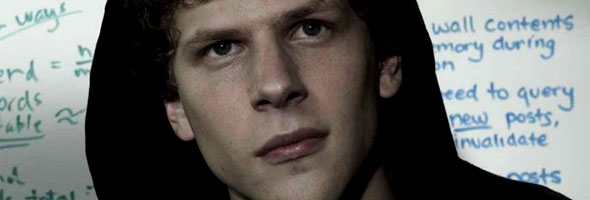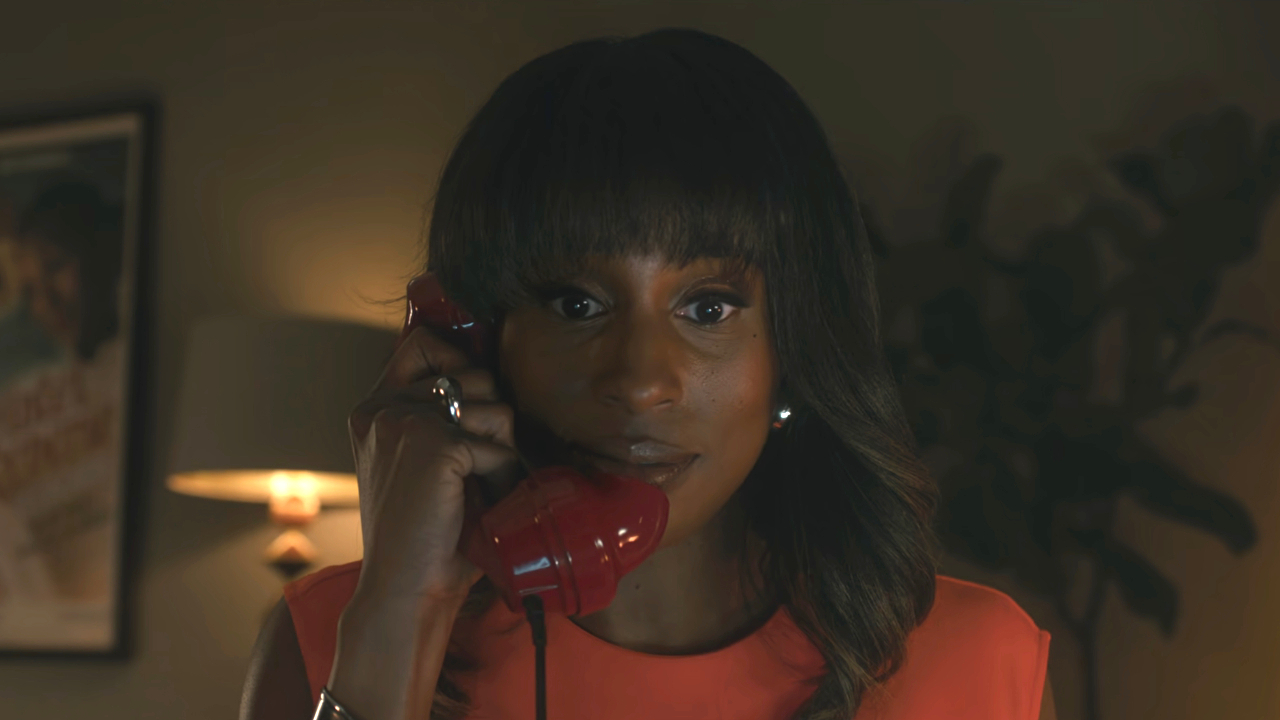Some people are born with good looks or with the natural hand-eye coordination necessary to hit a fast ball. Others come from money or are naturally charismatic; they draw people to them in a way that just can’t be learned. Then there’s the rest of us. We’re nothing special. We’ll never be those people. We look at them and say it’s ok, but can’t even convince ourselves. Whether we choose to admit it or not, we want to be them or at least gain their approval. We want those people to see us as their equals.
Known to many as “The Facebook Movie,” David Fincher’s The Social Network is not about the creation of one of the internet’s most successful websites. It’s not about becoming the world’s youngest billionaire. It’s not about greed and it’s not about power. The Social Network is a film about the inescapable need for acceptance inside each one of us.
It’s the fall of 2003 and Mark Zuckerberg (Jesse Eisenberg) is sitting in a bar with his girlfriend (Rooney Mara). He explains to her the importance of belonging to one of Harvard University’s eight prestigious all-male social societies called “final clubs”. Why? Because they’re “exclusive,” a word that Mark does battle with throughout the movie. Mark has a serious personality problem. To put it in psychological terms, he’s an asshole. Because of his intelligence, he gives off a stink of superiority and has no tolerance for those whom he thinks are beneath him (Read: everybody). He’s bullish and stubborn, which, of course, makes him unlikeable. His only option is to do something that makes people accept him.
Enter the Winklevoss twins (Armie Hammer). These 6’5” blonde Adonis’s are everything Mark is looking for: members of the Porcellian “final club”, future Olympic rowers, and holders of inherited money. They sit at the head of the cool kids’ table, shining examples of the kinds of people Mark wants attention from. He gets it after creating something called FaceMash.com, a small website so powerful it shuts down Harvard’s servers. The Winklevoss twins bring him in for a meeting with the Porcellian Club stairway and tell Mark their idea: create a social networking site defined by exclusivity, where women can find and meet Harvard men. It seems like everything Mark wants. But he’s not in a “final club,” he’s in a stairway. He’s not friends with the Winklevosses, he’s a business partner. He hasn’t been accepted – he’s been reached out to with a ten foot pole.
Whether because of his attitude or his approach, everything that Mark does to gain acceptance ends in rejection. He tells his girlfriend that being in a final club would allow her better access to the upper class, leading her to dump him. Mark’s first attempt to make a website in the film, a site where pictures of female Harvard students are posted next to each other and the users click on the girl that they think is the hottest, is wildly popular but results in every girl on campus seeing him as a sexist pig and their boyfriends repeatedly threatening him. Facebook is a billion dollar idea that winds up with Mark dealing with two simultaneous lawsuits, one of which comes from his best friend.
You may be tempted at this point to think of Mark Zuckerberg as a sympathetic character, a Willy Loman or Shelley Levene for the 21st century. Don’t be fooled - Mark Zuckerberg is a tyrant, an unstoppable force. Every effort Mark makes to gain acceptance winds up hurting someone; he is a serial bridge burner. Feeling disrespected by the Winklevosses, he morphs their idea and keeps them dangling on a string before cutting them off entirely. When his best friend and Facebook business partner, Eduardo Saverin (Andrew Garfield), becomes a prospective final club member, gaining the acceptance that Mark craves, he begins to shut more and more doors, rejecting idea after idea, before Eduardo is left behind completely. Mark is attempting the impossible, trying to gain acceptance through rejection.
This isn’t a simple film. It’s not the paint-by-numbers approach that you might see from a director less talented than David Fincher. At no point during the movie is the audience meant to sympathize with Mark. There’s no emotional scene during the climax where he crawls into a corner and bawls uncontrollably because he feels so alone. While the audience may feel the occasional shiver from the cold, Aaron Sorkin’s script never lets the audience feel distanced from the material. Eisenberg, recently stuck playing the nebbish, nervous weakling elsewhere, is stronger and more captivating here than we’ve ever seen him. There’s more than a film here; there’s a comment.
All of us can relate to Mark Zuckerberg. And that’s what will keep you engaged. You and I both want that same acceptance and equality Mark wants. Plenty of movies show that heavy is the head that wears the crown. We have enough movies where money goes to people’s heads and they espouse that greed is good. The Social Network outright rejects the tropes of power and money. Instead, Fincher and Sorkin have given us something that we can all understand and relate to: the costs of the desire for acceptance when it mutates into the blind ambition of social climbing. There are a finite number of slots on a baseball team roster, only so many seats available at the cool kids table, and we all want to be offered that last spot.

Eric Eisenberg is the Assistant Managing Editor at CinemaBlend. After graduating Boston University and earning a bachelor’s degree in journalism, he took a part-time job as a staff writer for CinemaBlend, and after six months was offered the opportunity to move to Los Angeles and take on a newly created West Coast Editor position. Over a decade later, he's continuing to advance his interests and expertise. In addition to conducting filmmaker interviews and contributing to the news and feature content of the site, Eric also oversees the Movie Reviews section, writes the the weekend box office report (published Sundays), and is the site's resident Stephen King expert. He has two King-related columns.
Chris Evans Pens Sweet Tribute To ‘Older Sibling’ Scarlett Johansson, And Now I Really Need To See Them Team Up For Another Movie
Bowen Yang And Kelly Marie Tran Open Up About Crew Members Sharing What It Felt To Work On A Queer Set For The Wedding Banquet: 'It Just Felt Really Magical.'











